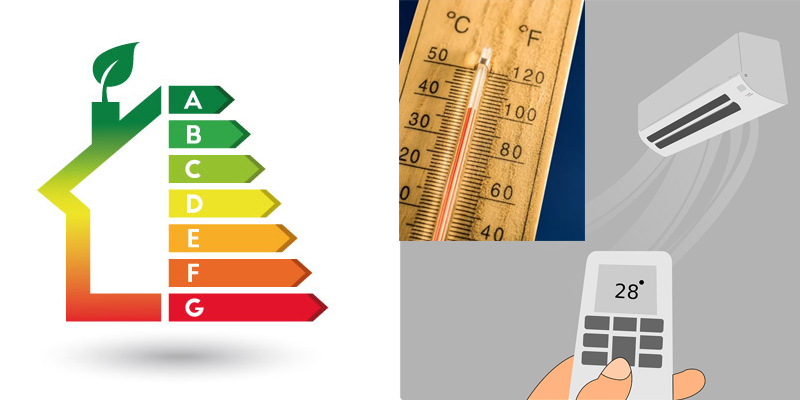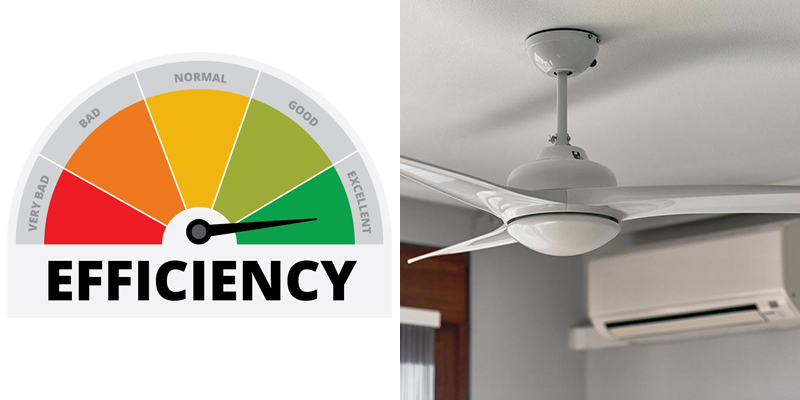In summer, the saying about the "golden temperature" for air conditioning to save energy—26°C—starts to flood the screen. Many people hold back their sweat while thinking to themselves, "If I hold back, the electricity bill will be lower," but is this really the case? Now we are to prevail over this widespread "energy-saving myth".
I. Where does the saying come from?
As for its origin, it comes from the suggestions of many energy institutes and electricity companies. They recommend citizens set an air conditioning temperature of 26°C or above, which is based on the overall power burden management rather than the most energy-saving plan targeting each unit of air conditioner.
In other words, this is a suggestion on a large scale, which may not be suitable for every family and type of air conditioner.
II. Real factors that influences the AC power consumption
Relying on the temperature adjustment to save energy is not enough. The factors below may affect the power consumption more:
1. Air conditioning efficiency ratio (EER/APF)
- The higher the efficiency ratio, the stronger the cooling ability per unit electricity consumption and the more energy saved at the same temperature setting.
2. The airtightness and thermal insulation of the room
- Air leaks from doors and windows and poor wall insulation will greatly increase the burden on air conditioning and lead to increased power consumption.
3. Duration and frequency of use
- Even if we set it at 26°C, if we keep it on all day long, then it will consume more power compared with 24°C but intermittent use.
4. Difference between indoor and outdoor temperature
- The higher the difference, the higher the burden on the compressor. For example, if the outdoor temperature is 36°C, then the settings of 26°C and 28°C have different consumptions of electricity.

III. Common misconceptions about 26°C
1. It must be energy-saving at 26°C.
- Actually, if the room is in high humidity and poor airtightness, it would consume more electricity while the air conditioner needs more time to keep the set temperature.
2. 26°C is the most comfortable.
- Comfort is related to not only the temperature but also the humidity, airflow speed, and air mobility. Many users complain that the temperature still felt "stuffy" or "humid" at 26°C.
IV. Using the air conditioner correctly can truly save electricity
If you want to make the air conditioner cool and save electricity, you may try the following suggestions:
- Choose high-efficiency products: Try to buy air conditioners with high APF levels (such as inverter air conditioners), which are more energy-efficient for long-term use.
- Reasonable temperature setting: It is recommended to set it between 26~28℃ in summer and adjust the body sensation by combining wind speed and dehumidification function.
- Clean the air conditioner filter regularly: Ensure that the air duct is unobstructed, which helps improve efficiency.
- Use with electric fans/circulation fans: Speed up airflow, reduce body temperature, and increase the air conditioner by 1~2℃.
- Avoid frequent switching: Frequent startup will cause the compressor to run at a high frequency, which consumes more electricity.

V. Don’t be superstitious about numbers; find your “golden temperature.”
It's better to adjust the temperature flexibly according to your room environment, air conditioner model, and comfort pursuit rather than blindly insist on the saying, "26°C is the most energy-saving temperature". The real energy saving is the combination of scientific use and the proper product.
Next time you turn on the air conditioner, try to find the golden temperature that suits your home based on the actual situation. This is the smart way to save electricity and feel comfortable.
For more information on energy-saving air conditioners, installation advice, or customized solutions, please visit our official website or contact the KRG customer service team.